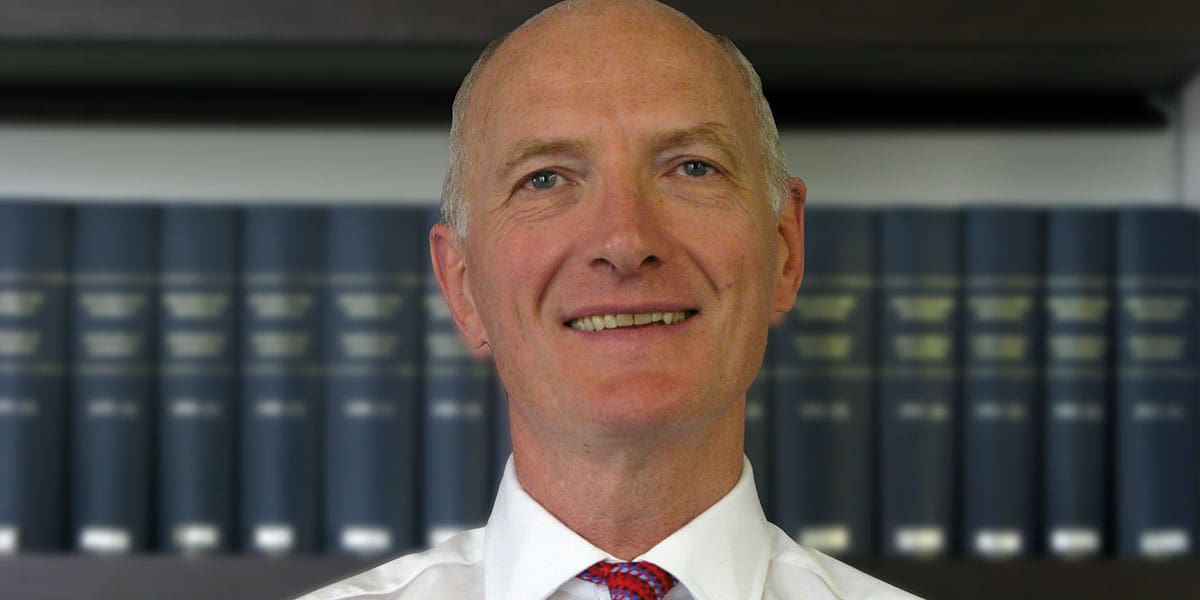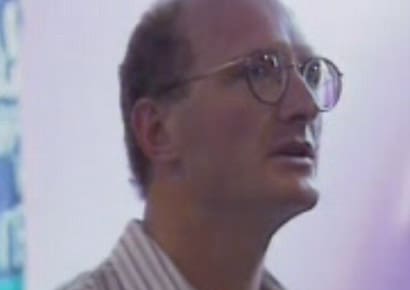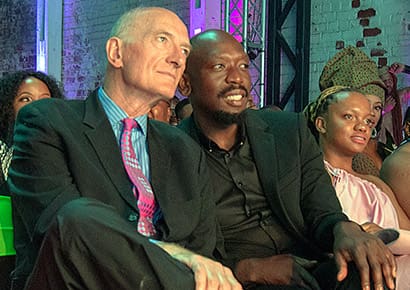Edwin Cameron | The Mamba Interview

As an openly gay and HIV positive recently-retired Constitutional Court Justice, Edwin Cameron is widely acknowledged as an iconic figure in South Africa’s LGBTIQ community.
He’s not only been lauded for his groundbreaking judicial role in shaping the country we live in but also for his work as an anti-apartheid lawyer and an LGBTIQ and HIV activist.
From an impoverished background, Cameron became one of the most powerful individuals in the country. Yet, he’s always retained his innate sense of fairness, integrity and humility.
He has lived these values; coming out as gay and HIV positive, co-founding (together with the likes of Simon Nkoli and Bev Ditsise) the first Johannesburg Pride in 1990, and speaking out for equality and justice. In so many ways he is the kind of authentic leader we desperately need more of in South Africa.
MambaOnline spoke to Cameron after his retirement from the Constitutional Court in August. Having been interviewed by major mainstream publications, he reached out to us by saying, “I don’t want to overlook my LGBTI allies.” He was especially keen to discuss issues not explored by other media, such as HIV and LGBTIQ equality.
You retired from the Constitutional Court on the 25th anniversary of your appointment but you could have stayed on for another year or so. Why leave when you did?
You would think that as you get more experienced, more senior as a judge, it becomes easier, but it hasn’t. It has become more difficult. I found over the last few years the work in the Constitutional Court has increased enormously. I found it more stressful, although it isn’t a reason to leave a job. I’ve been living with HIV for 34 years this year. I’ve been diagnosed almost 33 years ago. I’ve been on antiretrovirals for almost 22 years but there’s a lot of very clear anecdotal evidence that if you were very sick when you started ARVs, as I was, that your risk of cardiovascular incidents or cancer is higher. So that was [also] at the back of my mind. It wasn’t the reason but I did have three [heart] stents put in two years ago, which was surprising because I have naturally low cholesterol, I haven’t eaten red meat in many years. I’m very fit and active. So to find that I had angina was quite a shock. All of that contributes. You shouldn’t whinge about stress when you want a high profile public position but I do think that I served my time for 25 years.
Are you now able to more freely express yourself since retiring as a justice?
Not really. I would mention my friend and colleague, Justice Zak Yacoob. He became very explicit. He stood down at the end of 2012. And he joined an explicitly anti-Zuma campaign. So, I would say that his joining an explicitly political campaign aimed at a controversial political figure was something I wouldn’t do. And in fact, it was felt inside [the court] because a lot of people used his political explicitness against the court. Certainly, there are fewer restraints because I’m no longer hearing cases, I’m no longer sitting on the bench. But it’s not a big difference. I think you should, having stepped down as a judge, still stick to a policy of restraint. Don’t sound off about public events, be restrained in your criticism of political parties or public figures. And I’ve tried to do that.
“The homophobic stereotypes are deeply embedded”
The country is going through a difficult time. Do you feel confident that the Constitution is resilient enough to meet the challenges we’re facing?
I don’t feel confident at all but I feel pretty hopeful. I think the Constitution during the Zuma crisis years proved itself quite a supple and powerful framework. And the Constitutional Court, while I was there, gave four decisions that I think had a direct bearing on Zuma’s resignation. I think whether the Constitution survives will depend on external factors, not on factors intrinsic to constitutionalism; depending on economic factors [and] whether the Constitution’s promises of greater social equity are fulfilled. But I think that our safest bet, through all its deficiencies, remains the Constitution.
You’ve consistently championed the importance of visibility for LGBTIQ people in Africa, although, it comes with risks in certain places and in certain communities. Why do you think that visibility is so vital in our liberation?
The intrinsic notion of same-sex affiliation or disposition or activity is to many people shocking because the homophobic stereotypes are deeply embedded, especially in monotheistic culture; Judaism, Christianity, Islam… So while LGBTI existence is confined to the margins, to the shadows, you can never overcome what to many people unreflectively is revulsion. And worse, you, probably like me, grew up in a terribly homophobic world and we are still carrying the scars. Even though I was attracted [to men], I thought with revulsion of myself. It’s the internalisation of homosexual shame. So, the antidote to that is [visibility]. People think of coming out as national TV, as gay Pride day, newspaper interviews… not at all. Coming out is a tiny step-by-step process… when you talk to your best friend, maybe to your sexual partner, where you take a tiny step within the family, or within the community. There’s no doubt that every single coming out contributes to a mind shift. That’s why Harvey Milk was so right – that coming out is an intrinsically, inextricably political act because you have a social impact when you come out.
There’ve been reports of plans for a new anti-homosexuality law in Uganda. The ‘justification’ for these kinds of oppressive laws is often based on dangerous stereotypes.
Those stereotypes are playing a functionally harmful role in our lives as Africans. [But] when your daughter or your best friend says to you that she’s lesbian and that it’s been a struggle for her for the last 15 years, you realise this is not something that she’s chosen to be. People say, ‘oh I never realised,’ or ‘oh I didn’t think my own son, my own best friend, my own mother, my own father, my own uncle [could be gay].’ All of these stereotypes, the ‘recruitment’, the choice, the lifestyle, all of that is rebutted.
“The biggest problem remains stigma”
How would you respond to the criticism that the courts in South Africa have not been very forceful in defining the boundaries between discrimination and religious beliefs?
The criticism is justified, I think because it really is a deep issue. I do think that with public accommodations, public services, public benefits, religious freedom has become an excuse [although] I think our constitutional jurisprudence is very clear that religion associated with personal [expression] is protected. I would refer to the same areas of personal sanctity which the Constitutional Court recently upheld when the court said that there are certain things you have got to be able to do in private; like smoking dagga. [But] in public accommodations, it’s very clear: if you want to serve the public don’t discriminate. Don’t say my religion makes me a racist, like the apartheid churches. The bakers’ cases would have a harder time in our courts than they had in the Supreme Court of the United States to say, ‘I don’t want to serve gay people or give them a gay cake’.

Edwin Cameron at the first LGBTQ Pride march in Africa in 1990 (Pic: The Braxton University)
So what do you say to that jeweller in Cape Town who believes that he can turn away a lesbian couple because his religious beliefs do not support same-sex marriage? He firmly believes that he is entitled to discriminate according to his constitutional right to freedom of religion.
He’s certainly entitled to withhold associating with gays or lesbians or to hold his views, but not in public offerings or public services. No one is going to tell him to invite the lesbian couple home or to be friends with them but once he’s offering a service to the public you have to do it without discrimination on the basis of any of the characteristics or like characteristics in the Bill of Rights. This is embedded in our national history where for more than 300 years people were allowed to discriminate against black people.
Turning to the fight against HIV. Are we winning? Do you think we are doing enough?
I think we’ve done a lot but we haven’t done enough. We have no reason for complacency or self-congratulations. The biggest problem remains stigma, both external stigma as well as internalised stigma. I think the role of internal stigma has been insufficiently understood. The internalised stigma is where I as a gay man still ask myself, after 36 years of coming out, ‘are we really that normal?’ There’s a tiny little voice, it’s very tiny now, but it’s still there asking that question. And that’s the internalisation of 2,500 years of monotheistic hatred towards us. And with HIV it’s even more pernicious. The stigma persists. I think the fact that I’m still the only [HIV positive] person holding public office [in Africa] who speaks openly about it is a symptom of that. Even when people know that they will be accepted, that they will not be rejected or lose their job, we still feel ashamed. And that is internal stigma. I think that’s why we still have a deficit between people on ARV treatment and people who haven’t been tested yet and people who die. My cousin didn’t want to be tested, didn’t want to talk to us about it [and] went home and died.
People without symptoms who are diagnosed with HIV often don’t want to start treatment and many who do start ARVs then stop… Why do you think that adherence is such a problem?
The resistance to it is partly the resistance to all health-seeking behaviours: ‘I like to smoke, why can’t I smoke? I might be 75 when lung cancer or emphysema get me.’ You deny and postpone. But there’s something more with HIV, which is also the unwillingness to accept that you have this virus. That’s where the stigma still resonates…
As someone who has been living with HIV and on ARVs for so long what would your message be to someone who’s been diagnosed with HIV?
I would give a message of hope. Your present uncertainty, your present torn feelings, your present dejection – those hard feelings that you are working through… I promise you unconditionally, that they’re going to get better. Stick to the medicine, talk about it with trusted friends. You don’t have to go public with it [but] talk about it to even just one trusted friend. But I can promise you it’s going to get better, that feeling will lift. As you gradually accept that this is just a piece of clever virus in your blood that is effectively managed by modern medicine, you will feel better. As you realise that taking your meds gets easier and easier every day, you will feel better. As you talk to a few trusted people you will normalise it in your life. And I can really promise you that there is hope, there is affirmation and there is a fuller life.
“Every time you come out, there is history on your side”
PrEP could have a huge impact on preventing HIV infections, although it remains controversial for some. If PrEP was available when you were younger before you came into contact with HIV, would you have used it?
I would definitely be using it. I’m strongly pro-PrEP and I’m strongly pro-condoms. For as long as people are going to have unsafe behaviours, why not give them everything to make it easier for them to make self- affirming, self-preserving choices? PrEP is a wonderful instrument. The other side of the argument is that there are antibiotic-resistant strains of gonorrhoea and syphilis. PrEP will save you from HIV [but] it won’t save you from those other things. I would tell my younger self; take the PrEP but also be very careful before engaging in unprotected receptive or insertive male-to-male sex.
You’ve had to come out at least twice in your life; as gay and as HIV positive. In what way did they differ and which was more of a challenge?
The second one, definitely. Coming out as gay can be a deeply self-affirming step, you are joining a millennial history of same-sex orientated men, women, bisexual, transgender men and women all through human history. Every time you come out, there is history on your side. Whereas I found coming out with HIV to be an anguishing step. And that’s why I’ve never called on anyone to come out [as HIV positive]; cabinet ministers, sports stars, senior public figures, priests… I would never do that because it’s such a deeply personal decision and such an anguishing one. And it’s because the virus is such a deeply stigmatised virus. At the same time, when you come out, the burdens are lifted. I’m sitting here, I’m 66-years-old, and the most positive thing I did in my life was to come out with HIV. It took a burden off me. It passed the burden onto others; they had the choice of whether to condemn me or not. It was the most affirming thing.
Let’s talk about your relationship, which recently came to the fore.
At my farewell ceremony at the Constitutional Court, I acknowledged my partner, Nhlanhla Mnisi. I asked him, ‘Where were you these past 62 years until we met?’ [Laughs] We met five years ago [but] this was very public. It was carried simultaneously on radio and TV.

Edwin Cameron with his partner Nhlanhla Mnisi at the Feather Awards, where he was presented with the Simon Nkoli Award.
Tell us about Nhlanhla?
He was born in Swaziland. He’s a permanent resident in South Africa. He graduated last year at Wits with a PhD in aquatic science. And we’ve lived together since the beginning of 2017. So it’s a new relationship, but it’s made a lot of difference in my life. We’re not married but he’s on my spousal register for my judge’s benefits.
And how did you meet?
He came to Johannesburg from Swaziland on a Wits bursary which covered his fees but very little else. That was in April 2014. He came to the court and asked to see me [but] I was in Cape Town giving a speech, and my PA went to the front and she gave him my email address. So he wrote to me and I asked a friend who has helped a lot of gay causes, Christopher Seabrooke of Sabvest. Christopher gave him a four-year scholarship within 24 hours, which made it possible for him to move into a graduate flat on Wits West Campus and complete his PHD. We didn’t start seeing each other until a year later.
Looking back on the relationships you’ve had in your life, what has made this one different?
It took us both a lot of patience and a lot of hard work. I find commitment and intimacy very, very difficult, but it’s been very worthwhile.
Do you think of yourself as a role model or an icon in our community?
I don’t. I think I did what I did out of necessity at the time I did it, certainly with coming out. It felt like something that was necessary and inevitable. I became an apartheid lawyer and I fought LGBTI cases and for equality as part of a bigger struggle. The HIV coming out was definitely impelled by necessity [and] fighting with Zackie Achmat and the Treatment Action Campaign [for] ARVs was a moral necessity. I don’t see myself in an iconic sense at all. I did what I thought had to be done.
You do realise that others see you in that light?
I accept that people do see it differently. I’m very grateful and I’m honoured by that regard and a bit of responsibility, but not too pompous. I told this story before, but a few years ago, my friend said: “First you were ‘Mr’, then you were ‘advocate’, then you were ‘professor’, then you were ‘judge’, now you are ‘justice’. I’m just going to call you madam!” [Laughs] So I think the nice thing about LGBTI life is that we’ve perfected the art of self-irony or spoofing ourselves and I’m never very far from spoofing myself. So when you ask me that question I immediately roll my eyes…”iconic”! [Laughs] So it’s very good that we don’t get too serious about ourselves. The struggle is serious – but not ourselves.
Edwin Cameron has no intention of retiring quietly. In September, he was elected Chancellor of Stellenbosch University, while President Cyril Ramaphosa also recently appointed him Inspecting Judge of the Judicial Inspectorate for Correctional Services, an independent prison oversight body.
I loved this interview with Justice Cameron. I’d give anything to have been a fly in the room during the interview.